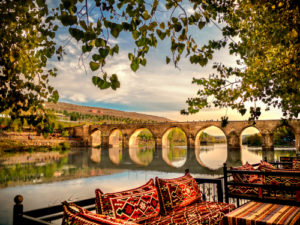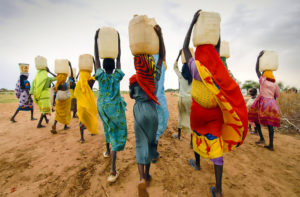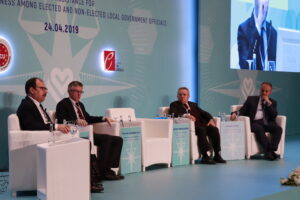
Technical Assistance for the Operation of “Hand Made in Hatay”
However, Antakya craftspeople and businesses can offer original designs and fine workmanship and can draw on a long master-apprentice tradition and rich multicultural history, the city has not lived up to its potential. This initiative, the Hand Made in Hatay project is part of a larger initiative, financed

Technical Assistance for Supporting the Solution of Economic and Social Integration Problems in Diyarbakır, Şanlıurfa, Gaziantep, and Erzurum, as Major In-Migrant Destinations
Rapid migration in major urban areas, namely Diyarbakır, Şanlıurfa, Gaziantep and Erzurum (DGES), have adverse impacts in Turkey. To reduce these unfavourable effects, EKOSEP aimed to support social integration and environment-related infrastructure problems due to migration in the selected provinces in a multi-actor manner. Furthermore, it aimed to

Technical Assistance to Support Direct Grant Management in The Field of Employment Policy
It is essential to keep labour markets alive for every country in the world. As a result, the project aimed to increase the effectiveness of Serbian employment policy in line with the country’s labour market needs by working with institutions and organisations which are responsible for the labour

Technical Assistance to Support CISOP 2014-2020 Operations, Information and Publicity
The overall aims of the “Technical Assistance to Support CISOP 2014-2020 Operations, Information and Publicity” are to increase the competitiveness of the Turkish economy, to open it up to innovation and to reduce regional socio-economic disparities across the country as the Turkish and EU economies converge. We are

Technical Assistance Support to the Women’s Breakthrough Project
Over the next century, half the world’s population growth is expected to take place in Africa. It is recognized that one of the continent’s most significant development challenges will be creating enough quality jobs and to employ this population growth. Gender equality, particularly the inclusion and empowerment of

Technical Assistance for Prevention of Corruption and Promotion of Ethics
Despite the OECD’s assessment that Turkey has made significant progress since 2007 in its efforts to combat corruption, the issue continues to represent an obstacle to economic and social progress and, potentially, to greater integration with the EU. The overall objective of the project was to contribute to

